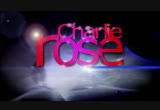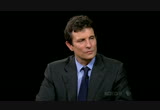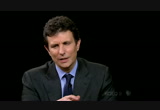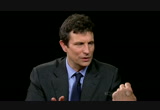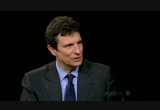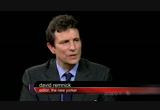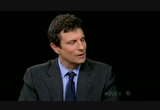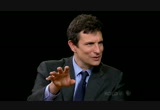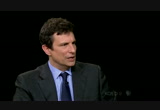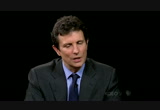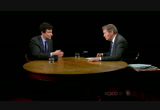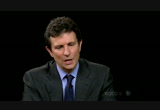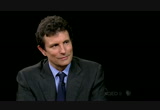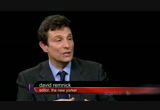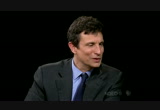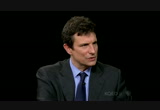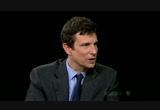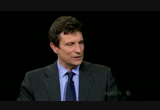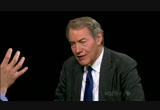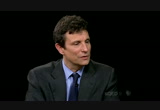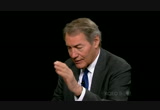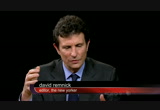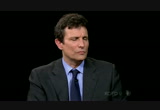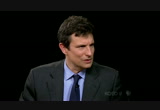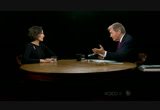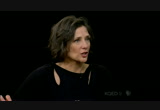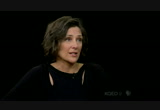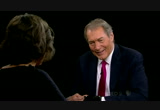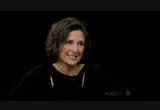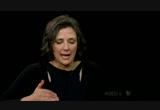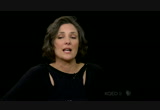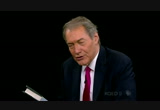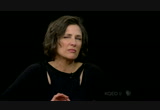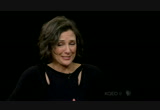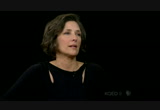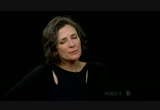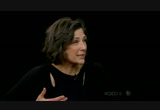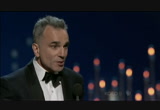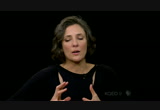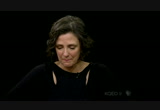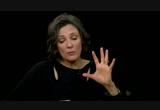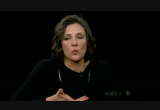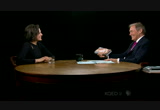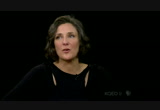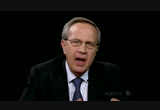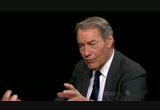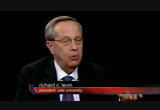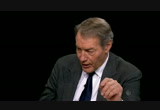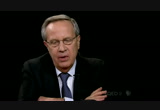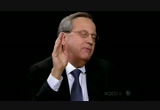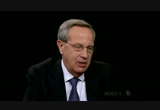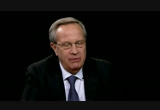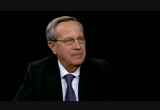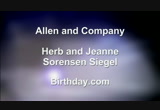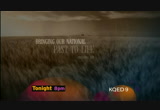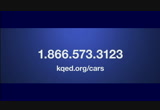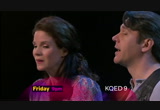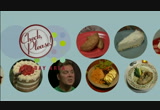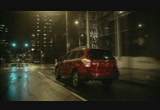tv Charlie Rose PBS April 23, 2013 12:00pm-1:00pm PDT
12:00 pm
12:01 pm
from our studios in new york city, this is charlie rose. >> rose: we begin tonight with the continuing story of the aftermath of the boston marathon tragedy. in boston today, dzhokhar tsarnaev was charged with using and conspiring to use a weapon of mass destruction. the maximum penalty is death. many questions remain unanswered. were they acting alone or did they have help? were they planning more attacks and was their chechen ethnicity important? joining me now is david remnick, he is editor of the "new yorker" magazine which has a full coverage here called "the marathon bombing: tragedy in boston, a place in history" of george parker. "the culprits" by david remnick and the street scene by seth manukin. welcome. >> thank you. >> rose: here's what you say. "the sense of bland unknowingness, he seemed so nice began to evaporate the closer we
12:02 pm
got to the tsarnaev brothers." >> always in these tragedies, murder stories, terrorist stories, you have the initial quotes from -- "he seemed so quiet, he seemed so nice, i just saw him the other day." >>. >> rose: with his dog. >> and all that kind of stuff. but because of social media that evaporated quickly and you immediately started to get youtube pages for the older brother. you got a twitter feed from the younger brother. you got all kinds of -- his amazon favorite list and suddenly a picture begins to form of especially older brother becoming increasingly interested in jihadi politics. in some form of chechen-based or northern caucuses based global jihad-like politics and an intense and fundamentalist view and the a dangerous view of islam and bringing the younger brother along for the ride. so it seems. but we should really -- you know
12:03 pm
journalism should be a question of what you know but it also should be a question of what you don't know. there are a lot of people around with a lot of stupid ideas, foolish ideas, even extremist ideas. but what makes them act? what makes them do something as horrible, as violent, as cruel as setting off bombs at the boston marathon? and apparently having plans to leave boston and commit further mayhem. maybe even coming to new york. we don't know. >> a story -- >> rose: a story that maybe the guy who carjacked him said they were going to new york. >> pretty thin evidence. >> rose: okay. >> the evidence is the guy heard them talking either russian or the chechen mother tongue and heard blah blah blah, manhattan, blah blah blah. so what that means is quite unclear. >> rose: here's what interests me, too. so maybe playing up what you just said. so david remnick, whose curiosity is unbounded about the culture of politics. >> rose: with everything.
12:04 pm
are you married in on this and you wanted to know what? why they did it? >> i wanted to know what anybody wants to know. you see these two shmucky looking guys in baseball caps and one's just out of high school and it's kind of a not-so-great one kid is 26, a boxer and people know them. you want to form a picture. you want to understand. it's not of a question of getting hammered on twitter by some right wing groups that somehow i was thifrp thet i can with him. this is ridiculous. i'm not sympathetic with people who do something horrendously cruel and kill people and have plans for more. but there's the human impulse to want to try to understand maybe something that's impossible to understand and form a picture of who they are and because of these mechanisms and because there's a lot of terrific reporters around-- the latest good story was in the "wall street journal" this morning, a good portrait of this family--
12:05 pm
so there's an accretion of knowledge not just from week to week as in the old media but almost from hour to hour if not more. >> rose: somehow so how did you go about it? >> i picked up the phone! no, i'm serious. >> rose: and call? >> yeah. and you look at web sites but you don't just leave it at that. i think that's not enough. and you call people who knew him and then you ask "do you know anybody else who knows them" and you have their number. you have their i mailed a dress. >> rose: what you've been doing all your life. >> yeah. it's not as complicated as what -- >> rose: so what did you find out? >> well, i think this picture is beginning to form both in my piece in the "new yorker" that was finished friday night but now that's accumulating over the weekend and now monday is of a picture, i think we give it too much credence to say that somehow he's a mastermind of chechen separatists. >> rose: is he a tool of chechen
12:06 pm
separatism. >> we don't know if anybody's operating him or running him. >> but he bought into something while he was there. >> you had something who felt they did not belong anywhere. this is not a matter of sympathy. this is a matter of trying to understand. you have an older guy who moves from dagestan-- and i can't begin to tell you how different life is, dagestan is from life in cambridge, ma dagestan is the where the spillover from the two chechen wars is being felt to this day. it's a very, very violent place. it's a place where the russian army and government is the putting immense pressure on separatists and fundamentalists. there's a real cruel war taking place between a cruel government in moscow and very unzaire savory characters in dagestan and chechnya.
12:07 pm
this is no longer a matter of romantic nationalism, it's much more a matter of jihadi activity. so what the tsarnaev brothers started to focus in on wasn't just a matter -- >> rose: brothers or one? >> well, i think -- again, the picture seems to be that the younger brother follows the older brother. but the younger brother also is expressing these views on his twitter feed in so far as we can say. these are ideas that 140 characters at shot. sglaefrjtdz s they're starting to look at videos of deeply unsavory religious preachers. there's one named fez mohammed who's australian born who's based in so far as we know malaysia now. he'd been in liverpool and these videos are posted on the older brother's youtube page and they are horrendous. anti-semitic, anti-christian, anti-west, anti-everything, full of fury, full of hatred. >> rose: beginning when?
12:08 pm
>> as much as three, four years ago. so the elder brother-- who's now dead-- he was 26. the younger brother is now under arrest and seemed to have -- it appears he tried to shoot himself. >> rose: right. in the boat. >> unsuccessfully in the throat. he's communicating with law enforcement by writing. by -- i don't know how he's doing it. >> rose: or nodding in some way? >> he's communicate with them. not an ideal circumstance, but that's what he's doing. >> rose: do we know whether it's a cooperative way or not? >> it seems to be cooperative. but, again, i don't have any inside information. we don't know as much as we know. and the older brother really got radicalized in a hurry. >> rose: by a trip back to -- >> no, not -- by the time he made his trip back he was already deeply involved in this. >> rose: so why did he go back? >> well, according to the
12:09 pm
parents, according to the parents he had to go back in order to renew his passport and he went back for six months. right now we are at the stage where we don't know his exact whereabouts except for that the parents say that the older brother, tamerlan, stayed with them in dagestan, in the capital city and the father claims-- although the father and mother seem wounded and deluded to say the least about their sons' activities-- say that he was with them almost all the time and that he visited some relatives in chechnya as well. who he was seeing, what he was doing, we're not clear in a minute-by-minute basis. he was going to the mosque, there's nothing ostensibly wrong with that, anybody going church or synagogue. so what law enforcement authorities, what intelligence authorities in russia and the united states are going to have to figure out what s what those movements there as well as here. >> rose: and was there some
12:10 pm
noticeable change after that? >> when he came back? >> rose: yes. in terms of what they tweeted or anything else. >> i think the intensity of it increased. certainly in the last year, for example, the twitter feed of the younger brother dzhokhar becomes -- again, this is all in the rear-view mirror. this is all applying what we know or we believe to have happened at the marathon and after. but those tweets are ominous. they're ominous. having to do with disaffection, he's a 9/11 conspiracy theorist, he feels offense about muslims in america all the time. it adds up to a picture of intense disaffection and that's for the younger brother. the older brother is even worse. >> rose: did anybody see this? >> yes! relatives. for example, the uncle who you've seen on television any number of times who lives in maryland and who seems to have broken -- >> rose: he's the one before
12:11 pm
they were everyone captured. should give themselves up and apologize. >> now, a lot of what he says is his alarm at hearing the brothers use the word "god" all the time. no if we got alarmed with everybody using the word "god" all the time a large percentage of us would all be locked away. so it's unclear that the uncle knew in any granular form that it was anything more than -- more dangerous than he's suggesting. but clearly there are people around. for example, today i read a blog article, it sounds almost funny. but by the woman who gave facials to the mother of these boys and she saw her client becoming more and more religious and becoming more and more angst. again, there's no harm in being religious, with we know that. but a picture begins to form of a family that's troubled. >> rose: it's not just the two
12:12 pm
brothers. >> the parents split. >> rose: he's back in russia. >> he's in dagestan, the father. >> rose: dagestan, sorry. >> well, dagestan is part of russia. >> rose: well, i was thinking of moscow. >> they have no moscow life. and we know that in twaechb russian intelligence was concerned and expressed that to the u.s. government, the f.b.i. >> and what do we make of that. they expressed their concern and look at them and say, well -- >> rose: >> then they look at them and say, well -- again, i don't want to guess but i don't think this is something that happens only once a year to one person. there are any number of people looking at unpleasant or worse. >> rose: the f.b.i. gets a lot of requests like that. >> of course, and not just from russia. again, what are they going to take action on? downloading bad web sites? going to the mosque and getting in arguments with people and being more ardent about their religion? in other words, it was no
12:13 pm
criminal activity that we know of. there was a tweet today by abc news, i have no way of knowing if it's legitimate, suggesting that maybe police are looking into the older brother's possible involvement in a murder case from three years ago. again, i want to repeat, there's no evidence of this yet and these are pictures that are just forming. >> rose: how much integration was there into the community they lived in >> well, ostensibly, enormous! they went to school. they weren't superstar students to say the least. >> rose: they went to parties, they had girlfriends. >> they smoked a lot of dope which is to say the least not unusual for kids that age. the older brother was a very proficient heavyweight boxer. maybe one of the best amateurs in the region. his career -- he reached 26 and he was no longer going to be on the uprise as a boxer. he kind of felt -- >> rose: they had a grievance. >> a failure. >> rose: a failure because
12:14 pm
somebody was misjudging them? >> there have been psychological studies about young men between, i don't know, 15 to their mid-20s and some vast number of crimes and awful things happened because the disaffection of and the inability for young men for whatever psychological or biological to make good decisions. so it's not unusual to see a disaffected 19-year-old, or a disaffected 25-year-old guy. again, we have to admit what we don't know. what we don't know is how disaffection or even interest in radical ideas leads to an evil act. that may or may not be determined and sometimes that's the stuff of novelists. is i mean, you can only find it out when you make it up. you don't always know -- >> rose: how do you go from radical ideas to violent action? >> well, look at mohamed atta. mohamed atta is something we're
12:15 pm
still trying to puzzle over. he's the lead -- >> rose: middle-class living in haurg. >> yeah. so we now have novels about mohamed atta trying to figure out these motivations. martin amos wrote a long story about this kind of human speculation. we don't know and we're only a few days into the business of gathering -- >> rose: do yo have any -- do you see things that might be indicative of what -- >> indicative? yes. all of -- there is this evidence -- >> rose: i mean indicative of what causes someone to go from radical ideas to violent action? >> most don't. that's a tiny percentage. >> rose: okay, but what about the -- >> there's no twitter moment. there's nothing online. there are no diaries that we know of. there's nothing where it says we're going to do x. there's no friend that says, yes he did this to me and he might take action like this. that we don't have. >> rose: no one heard him say "i'm going to go dig do
12:16 pm
something that will make me famous"? >> which, charlie, is part of the reason why the investigation what happened in that six months when he was in both dagestan and chechnya is so important. to try to figure out is something -- are these two kind of guys that go act on their own inspired by what they see online? or is it in more conventional terms are they acting on someone else's orders or training? >> rose: and what are the chechens saying? >> well, interestingly, in dagestan, the leading jihadist group disavows any interest in attacking the united states. which is interesting. >> rose: they've got closer targets. >> well, they have. for example, usually in russia. i mean, notoriously, for example at an airport in russia, two women blew themselves up killing a hell of a lot of people and there have been other such incidents of this. >> rose: but so nothing's coming
12:17 pm
out of chechnya? when you pursue those lines they simply say "this is not us, we don't dislike the united states, we have no evil intention." but no one in chechnya has come forward that saw him during that six-month period and said -- >> in fact, you should understand, this is an important point. beginning -- so the whole chechen drama, which goes back to the czars, the czars were trying to put down the chechens. you can read all about in the tolstoy. so the drama erupts again in 1991 with the collapse of the soviet union and the chechen separatist movement breaks out and it becomes a matter of violence and the yeltsin government puts down violently the first chechen war. then in '99 there's another chechen war. the chechens are defeated again. and those combatants did one of two things: either they -- in their exhaustion went over to the russian side or they dispersed into dagestan which is right near them and kind of took for the hills, as it were.
12:18 pm
and the ideology changed. it was no longer a matter of chechen separatism, it was a matter of global jihad. it's a very -- it's a very difficult thing to suss out. so when the dagestanny radicals said they have no interest in u.s. targets, it's hard to figure out what they mean at this point. >> rose: any evidence of any training anywhere? >> well, it was said that the family's father had given them some military training but i don't see any evidence of this yet and that might have been anecdotal and he taught them how to shoot a gun or something like that. i think a domestic question has to be asked is how do kids like that get guns? >> rose: that ice what i've always wondered. i mean, they had -- >> they build these bombs. >> rose: guns and weapons. pipe bombs. >> these bombs are so crude-- thank god they're so crude-- that the poor eight-year-old boy who was killed by this bomb, there were people right next to
12:19 pm
him that were barely harmed at all. a much more effective bomb by, as it were, a pro-- thank god they weren't or didn't seem to be-- would have had a much more effective bomb as you see all the time in baghdad or kabul or wherever. where are they getting side arms from? where are they getting pistols from? it's not -- to me, and i don't want to politicize an act of terrorism, but it's -- it is worth remarking upon in -- that within a week's time a very, very, very weak gun control bill gets defeated, in effect defeated in the senate. we see yet another act which might have been a hell of a lot more difficult to pull out with effective gun control. not for nothing. >> rose: most of the wednesday you said were crude. the bombs that they created were pressure cooker bombs. the pressure cooker bombs were crude?
12:20 pm
>> they were pressure cookers loaded up with explosives and pellets and nails. and that's what does the killing. >> rose: what about their intelligence? >> these were no geniuses. you know, for example, the younger one was who was at bunker hill community college was getting lousy grades. the older one was in and out of a modest college nearby and kind of failed out and then dropped out. again, there's a lot of people of average or less-than-average intelligence who lead decent and moral and productive lives. god knows. that can't be the -- >> rose: here's what interests me, too is that what does this say? i interviewed former president bush and basically said the following question: our war on terror is almost essentially a war against al qaeda. and we've seen this sort of al qaeda affiliated terrorism.
12:21 pm
this was an entirely different thing. >> well, we've decimated-- it seems-- the al qaeda leadership to a great degree. but the ideas of al qaeda, the kind of franchises of al qaeda, preachers who are preaching things in various languages are all over the place. >> rose: it seems to be that people who become radicalized and then either because they can go on the internet and follow some -- somebody preaching -- >> it can only be discredited by the decency and effectiveness moral and otherwise of our way of life and -- which has -- would not react well to the 9/11 aftermath. there was so many things that we did wrong. whether it had to do with the waging of war or the trampling of civil liberties and i hope
12:22 pm
that we've learned our lesson. so when i first started hearing words from certain senators about "let's treat him as an enemy combatant." i don't know the motivation, but i blanch at it. >> rose: yeah. >> this is a country -- >> rose: they modified that and said they didn't want them to be tried as -- >> they can no longer do it. by the way, we have a 100% conviction rate of terrorists on our soil. >> rose: tried in civilian courts. >> absolutely. >> rose: yeah. >> this is a very effective justice system for the most part. it has its deep flaws but it hasn't been about prosecuting terror. >> rose: i'll close with this. what is the whole body of evidence of terrorist activity suggest us whether mohamed atta or whoever it might be suggest between an -- having an ideology and a radical view of the world and maybe even a personal grievance because of circumstances and flipping over
12:23 pm
into a violent act. what is the body of analysis tell us? if anything. >> well, the body of analysis as i understand it-- and you've have had v to go to people with far greater expertise than i have on this-- is that there's some organized trip wire for this. very often there is. this is the missing piece in all our very, very early day reporting on this and i come back to this six month trip to the northern caucuses. what did or did not happen there? is it a question of tamerlan learning everything from the internet and that being combustible with his own sense of disaffection and anger and perceived rootlessness and perceived injury, whatever it was. or, in fact, did someone seize upon it and, as it were in the old cold war language turn him and run him.
12:24 pm
we do not know that yet. >> rose: david remnick, thank you. >> thank you. >> rose: david remnick reporting in the "new yorker" magazine. back in a moment. stay with us. >> rose: rebecca miller is here, she has been an actress, a painter, a sculptor, director and short story writer. she's also a novelist and her new book is called "jacob's folly." it tells a story of an 18th century parisian jewish regent who has been reincarnated as a house fly in new york. the "new york times" callings it "delightful, bawdy, detailed and complicated." i'm pleased to have rebecca miller here. >> thank you. >> rose: let's go right to the book. here is jacob he's a peddler in paris in the 1th century and he's reincarnated as a fly. where did this idea come from? >> well, you know, the book is
12:25 pm
constructed like a three-stranded challah bread. so it's braided and i started with one character which was actually lesley, the fireman, volunteer fireman and he was having a pee on his front lawn at the cusp of dawn. and that was my first image. >> rose: that was your first visual image? >> i started with an image. then i had an intuition that there was another dimension creature, some spiritual entity looking down on him and laughing at him. i didn't know more than that yet. then i had masha. >> rose: masha edelman. >> and once i realized she was an orthodox jew, at first i thought she was going to be a hasidic jew and i didn't want the whole family speaking yiddish because i felt that would be too hard for me to penetrate, i started doing a lot of research on judaism both contemporary and the history of judaism, etc., and i came across a small article about a woman who lives in canada who had ten
12:26 pm
children and she was writing a little article about her daughter was followed around by a fly all day and she says "maybe it was a soul doing penance for his sins" says the woman in the article. and i thought is their there reincarnation of judaism. then i discovered the reincarnation of jewish souls and i had my point of the triangle. >> rose: so it began with a picture in your mind of a guy taking a pee. >> yes. >> rose: and it ends up as what? >> it ends up as the interweaving of these destinies, these three characters. and, in fact, they're all affecting each other even though a large part of the narrative takes place in 18th century paris in the tiny, tiny jewish community in paris at that time. and jewish -- jacob is a jewish peddler at the age of 16 we meet him and he's caring his wares in what they call a jew's box. >> rose: why did you want to set it there?
12:27 pm
>> i was already very curious about that period. i had read quite a lot about the marquis de sade and i wanted jacob to be the valet of the marquis de sade and i thought that was going down a habit role that i didn't want to go down but i thought maybe he could be a valet of a neighbor of the marquis de sade. because that world was -- i thought it would be interesting to have those two worlds intersect. i also became fascinated by the history of anti-semi-isim in in france and both the fact that they were the first country really to make jews citizens but on the other hand the tradition of anti-semitism and then how it branched out into -- overarched into the 40s. there were all sorts of things that made france a really interesting place to set this. >> rose: and when jacob the fly comes to modern day america, what does he find in the relationship between leslie and masha? >> well, when he mets lesley he's made very uncomfortable by
12:28 pm
him because he's such a good man. and a good man really, really puts jacob off and reminds him of his father who was a very good man, very disapproving of him and jacob is a bit of a rake by nature and it's his instinct to bring a good man down and when he sees masha the first time he thinks to himself "maybe i could use her to bring him down." and gradually he realizes that one of the powers he has as this reincarnated -- well, at first he thinks he's an angel and realizes he's a fly-- this creature, this demon is that he can speak inside of people -- certain people's heads. and these two characters he can get right inside of them. and he begins to kind of affect their narrative, or so he thinks he's affecting the narratives. of the what degree he's doing it and to what degree something else is doing it is one of the questions. >> rose: and jacob is your narrator? >> yes, he's my narrator. >> rose: and the role of the narrator here? >> well, he is -- >> rose: he sees everything?
12:29 pm
>> he sees everything to a degree. he has -- his powers are various. he -- sometimes he can see deeply into a character to their past and some characters, who are the ancillary characters, deflect him. and actually his problems are the problems of the writer. because a writer can't see into every character. certain characters resist the writer and, in fact, in a way jacob is also the writer. >> rose: but certain characters resist the writer? meaning that they're hard for the writer to -- >> to penetrate. >> rose: to penetrate and -- >> some characters come very naturally when you're writing. other characters you have to work really hard and others will never let you fully in. jacob came like water through my body. he came very quickly. his voice was in my body quickly i was able to write him. and lesley i had to kind of look at from different angles, many, many different angles until i began to see his inevident ability of his fate. >>. >> rose: when you think about what jacob does, did you have to
12:30 pm
do research about reincarnation? >> well, gilgul specifically, yes, i did. but i had -- this was a very this project was dominated by research and out of those years i would say maybe three of them, although it was interspersed with writing would have been spent just reading. my learning curve for this was so steep. >> rose: in the midst of writing this do you consult with daniel day-lewis? >> not in the midst. when i was done -- >> rose: 16-year husband i think it is. >> yes, almost 17. >> rose: (laughs) >> when it was done. but still it had room to change i showed it to him. he's one of my main readers. there are three people, four people i have that read it. >> rose: what are they? >> jonathan glassy, my editor. >> rose: sure, right. >> and daniel and barbara browning who's a novelist and my best friend. >> rose: and what do they tell you as you're writing this novel? this is chapter by chapter? >> no, no. for daniel it came almost at the
12:31 pm
end but not so far at the end that i couldn't keep changing. >> rose: you wouldn't talk to him about it at dinner? >> we did talk to him about it. and i would say "oh, my god, i realized he's a fly." or that kind of thing. and he would -- but it's great. >> rose: he would encourage you and say "what a good idea? " >> well, i think he thought i was completely insane. i don't know. >> rose: well, that's what i'm getting to. (laughs) did he at some point say "are you nuts, darling? you're the mother of my children forgod's sake." >> i think he could tell there was a kind of logic emerging, you know? >> it had rationality already? >> yeah, i think he could see some kind of logic emerging and that i was excited about it so he went with it. >> rose: do they change your mind about the relationship between the characters? do they help you understand it by their comments, these readers? >> well, somewhat. i think i had to do most of that myself. most of the dark work of writing is alone and has to be alone
12:32 pm
finally. but jonathan glassy was hugely, hugely helpful with the structure which took a year just to do structure. >> rose: what does structure mean? >> because this is the braid, you have to figure out where to break and where to break into another storyline and so it's sort of like breathing. you have to know when to breathe out, when to breathe in. so the reader isn't frustrated but tantalized and ready to move so they're not upset they have to leave. >> rose: masha wants to be an actor. does that come from your own early desires to act? >> well, not so much my early desires because i didn't have -- she has a real vocation but my experience in acting class, yes. and actually my -- i have to say that one of the few characters that's actually really based on a person is bridgette mooney who's elaine akin who was my teacher. >> rose: so she is your teacher? >> she was my teacher.
12:33 pm
>> rose: let's talk about that for a moment about you and being an actress. how bad did you want to be? >> i think it was about directing, i knew i wanted to be a director. new hampshire is even before you had your first role or you sort of assessed yourself as an actor and said i like directing? >> the way it happened was i was a painter and i made little films of -- i made little very dream like films and i needed $30,000 to make a crane that had a kinetic that moved up and down because i was trying to film a dream that i had had but i needed quite a lot of money and so i auditioned for a part in a movie that i -- that i was -- i was sort of discovered by sam cohen who said "you should be an actress" and i thought maybe i can get money for my crane. so i got the part. it was a weird series of accidents and then i got that part and i got my money for my
12:34 pm
crane and made my film with my two friends hanging off it being dipped out of buckets of milk, it was a verying acentric movie so acting was a lark at first but i realized i could learn so much. i didn't go to film school but then i went to school. >> rose: here's what i want to establish. did you make a judgment as to -- did you have passion for acting at any time or was it a means to do something else because it gave you the opportunity and because you were reasonably good at it? >> i wanted to be as good as i could but i think i always knew it wasn't my best -- i knew i was never going to be as great as one could be in it. i knew that i lacked something as an actress, i knew that always. >> rose: what did you think it was? >> i always saw things from the point of view of the director. i couldn't not see that way. >> rose: you thought like a direct overas an actor. >> so i couldn't let go completely because i was seeing the whole thing. that's what a director does, they have to see the whole story all the time and the actor has
12:35 pm
to lose themselves in one point of view and i think i somehow couldn't do that. it had to do with -- i suppose it was a kind of talent or an inability to release your conscious mind which makes me value acting all the more but partly my fascination with what acting is with in part with what t book is all about. >> rose: this book? >> yeah, because both masha and jacob at certain points are actors. he becomes an actor and she's an actor so the getting down to the nitty-gritty of the alchemy that acting is. >> rose: i mean, hello? by the way, you have in your house -- >> yeah, yeah. that's probably one of the reasons that i -- >> rose: -- somebody who understands a whole lot about it. >> yeah and we have discussed that as well when i was trying to get to the bottom of it. >> rose: what's the conversation like? >> just talking about the -- >> rose: the desire to act? >> not so much that but the moment of almost amnesia, forgetting when you're inside the moment of almost loss of self. >> rose: you become the character? >> yeah, the moment of loss
12:36 pm
itself and i think that's something that -- the idea was that masha, this orthodox jewish girl in this community where, you know, you don't -- she wouldn't be singing in front of people who she wouldn't be related to, for example, she has a very, very beautiful voice and a talent for acting and she has this deep, deep craving and deep talent also to expose herself in that way, that nakedness that one does when you perform and so she has to leave her community but that moment i was just trying to get to the kernel of the moment of what have that nakedness is like and what that absence of almost loss of self and i remember talking to daniel and -- about it. >> rose: what did he say? >> well, we were talking about that about the -- i suppose it is that, that sense of stalking oblivion is what i called it. i don't remember the exact conversation but it was sort of like that. >> rose: he's famous, we've
12:37 pm
talked about it with him a number of times. do-to-the point i don't think he likes talking about it that much but how he loses himself. >> yeah. >> rose: he does lose himself more than anybody but it's almost, it seems, essential for him to do. >> the yeah. >> rose: you know more about that than anybody sols help me here. >> no, i think you're right. i think you're right. i think in his case it's part of -- it's a natural part of the process. it's just part of it. and if it works, that's what happens, that there is a kind of -- it isn't a true loss of self-but it is -- i think you feel like you've lost. you don't remember what happened anymore. it's as if you were absent for a period of time. >> rose: roll tape. >> when we got married 16 years ago-- since we got married 16 years ago my wife rebecca has lived with some very strange men. (laughter) i i mean they were strange as individuals and probably even
12:38 pm
stranger taken as a group. (laughter) but luckily she's the versatile one in the family and she's been the perfect companion to all of them. (laughs) (applause) >> yeah. >> rose: that's kind of nice, wasn't it? >> it was so sweet. so great. >> rose: (laughs) >> yeah, what a sweet thing. >> rose: really sweet. >> yeah. >> you didn't expect it? >> no, no, i was so confused at that moment because i -- everything just happened so quickly so i was one minute behind. i hadn't really cottoned on to what was happening. >> do you want to direct more? >> yeah, i do. i have a screenplay that i'd like to make into a film. for years now i've been writing books and then it so happened my curiosity wasn't slake sod i would make the book into a film. and -- >> rose: private lives of pippa lee. >> yes. this next one is based on a
12:39 pm
friend's unfinished novel so it's actually not something i wrote which is kind of liberating, actually. >> rose: is this a movie? >> i don't know if i can compress it into two hours, is the thing. and that's where -- >> rose: mini series. >> yeah, maybe. i don't know. i don't know. and i don't know if revealing it literally would be the right thing to do. i'm not sure. >> rose: see, i have a lot of admiration for you because you've done all these things well or reasonably well: writing painting, directing, acting. how do you explain? >> well, the truth is in a way to talk about my acting seems a lifetime ago. >> rose: fair enough. >> for me i've been a storyteller for a number of years. for a long time now, 20 years, i guess, i've been -- for a long time in my earliest self i was in my 20s, i was searching, really searching trying to find a medium that could express me
12:40 pm
in the most total way. the way that i could do my best. because that's the whole idea is that you do your best and what's the medium? i was knocking my head against the wall sort of like somebody looking for their favorite shirt in a drawer and just throwing everything out looking for that one thing. and i didn't even really know what i was looking for. but when i found film i thought "okay, that's it." but that wasn't entirely it. and it was it but there was also writing books ended up being the other half of the puzzle and now i feel like i found it for a while now. but -- >> rose: you found it which is to write books and make them -- become a consummate filmmaker by literally writing your own story and then -- >> well, not necessarily always adapting the books but for me sometimes doing that-- although that's a very long road. but writing books and making films to me they reflect each other, there are very different lives. the life of a director is very social and collaborative and the
12:41 pm
life of a writer is solitary. >> rose: do you think you're better at one than the other? >> i don't really know. i think writing dominates everything i do in a way because even as a director i write my stories. i write my screenplays and i think of editing as part of the process of writing. so it might be that writing is somehow dominant. i don't think i'll know that until i'm done and i can look back or somebody can look back for me or something. >> rose: what about painting? what ever happened to pointing? >> i think painting became film making to me what i was trying to do in painting ended up becoming film making. acting was learning about film making for me. becoming that thing. now i can talk to actresses oar actors and really understand what they're going through. understand what they need in a way that i don't think victim if i hadn't put my body and my mind on the line like that. >> rose: turning it around where you show your book to daniel and his friends, does daniel talk to
12:42 pm
you about his performances? >> yeah, we do talk about them. but not so much -- you know, when he's on set it's kind of a -- that's not a time that i'm talking about it. >> rose: when he comes home? >> well, even then, it wouldn't really be talking -- talking about it a little bit but i wouldn't be looking at anything he's doing yet. looking at footage or anything. >> rose: when he comes home for dinner is he in character? >> no. >> rose: he's not lincoln when he has dinner? >> no. no. >> rose: (laughs) >> when we had children that would be a little bit much. (laughs) >> rose: but the thought was there? >> well, i think that was originally how he did it but it just got -- that was just too much. (laughs) >> rose: they're all boys, aren't they? >> yeah, yeah. so you have to have just one daddy, i think. >> rose: we don't need abe as a daddy, do we. (laughs) so how about non-fiction, how
12:43 pm
about this extraordinary life you've had? how about your father? how about your mother? >> how about writing about it, you mean? >> rose: yeah, you mother was a photographer. wasn't she a photographer? >> a great photographer. i have interest in writing on fiction -- non-fiction although i did over the last years -- about five years of my father's life. not the last years but five years sort of in the end part of his life i shot a documentary which i've never cut together but i have a lot of footage. >> rose: why? >> i don't know why i haven't done it. partly i didn't want to have to review the footage, i don't know why. i think i will put it together. i didn't know if i was ever going to make a film out of it. i thought i'd give it away or -- i felt i had to do it because i was a filmmaker and i had access to his personality in a way nobody else would because you tended to change his persona a lot when he was talking he'd
12:44 pm
become much more serious. at home he was a different person. so i do have some great footage. and i think -- i know -- i will know when the time is right to put this into -- to put it together. >> rose: you'll snow >> i think so, yes. >> rose: can't wait. right now we have "jacob's folly" a novel. rebecca miller, the great rebecca miller. much success to you. thank you. say hello to daniel. >> thank you so much. i will. >> rose: back in a moment. stay with us. >> rose: we continue with part two of our conversation with rick levin, the retiring president of yale university talking about yale and what it means and his impact. >> where do you expect to find where you hope to find yale, say, in ten years. >> so i think -- i hope and i think that yale will continue along some of the trajectories we started on. i think internationalization will continue. we have a really terrific set of
12:45 pm
programs now and i believe that's going. i think also our efforts to strengthen sciences at yale will continue. i think that to me -- if i were staying longer, the sort of new agenda is what to do with online education and what in particular role should yale play. there will be many different types of experiments with online education. >> rose: there some kid in high school that will be able to get an online education and an online degree from yale? >> maybe not yet in high school. but maybe in kindergarten. (laughs) >> rose: why that far? because you have to develop the -- what's holding you back? someone in high school today -- >> high school who may get an online professional school degree. that could happen. >> rose: undergraduate not because you -- because you value the undergraduate experience? >> exactly, you got it. so how do you create that? if yale is ever going to be in the business of granting undergraduate degrees we have to figure out how to make it
12:46 pm
something really distinctive that is essentially resonant with the values of yale and that's not going to be in the first generation of innovative -- >> rose: so let's take me, for example, still a learner. what can i access online from yale university today? >> we have 40 odd courses from some of our greatest professors that are available online. >> rose: how do you choose which are available and which are not? >> you have to tape them. you have to get the professor willing to do it, put in work and tape him. we taped about 40 open yale courses with the support of the hewlett foundation, over the last five or six years. they're online. they're transcribe sod you can actually search them if you want to find what this person says about a particular topic you can search the text and go to the video that corresponds. all the reading assignments and the related course materials are online so you could if you wanted to sit there and go
12:47 pm
through a 13-week lecture material and work your way through the course. we do not yet offer credit for taking these or oversee the grading and evaluation of students doing the assignments. >> rose: why not? >> i think that's the next step. we'll start that. and we did experiment with it in our summer school this past summer with several courses and it was very satisfactory. directors thought it was good and the students evaluated it as excellent but what we didn't do is what you're here reading about. we didn't do the mook version, the massive online open courses. we did smaller courses so that the professor could interact online with the students so these were courses with 25 or 30 people. >> rose: so what else is on the cutting edge of where the university is going? beyond international expansion, beyond online presence. >> i think using technology more effectively inside the
12:48 pm
university to contain the cost increases that we've had. so being able to use leverage the professors efforts to deal with larger numbers of students and have different ways of actually developing intensive learning. so in other words what some of us are now calling fliping where the professors' lectures are basically viewed before you come to class. you come to class and discuss them. this allows one professor to probably deal with a lot of people and have lots of people involved in the discussion sections. i think there are bound to be other ways as we -- technology will allow us to find ways to save but it's an expensive proposition. >> rose: is tenure a necessary thing? >> you know, it's probably on balance an institution worth having because it does -- it
12:49 pm
does give people security from being essentially disciplined for their points of view. i think the basic rationale for tenure was to ensure academic freedom for those who've essentially earned the right to be -- >> rose: you don't sound that enthusiastic about it. >> well, i think that there are probably lots of areas where multiyear contracts and re-evaluation later would work. our medical school uses that a lot. only a small fraction of their faculty is tenured. i think in the core arts and sciences it's so institutionalized and, frankly, it's not a problem at a place like yale. not a problem at all because to get tenure at a place like yale you have to be such an international star in your field that you're self-motivated. we have very good -- i mean, these people are internally driven to be productive. >> rose: what didn't you do? where did you either by act of omission or by act of commission
12:50 pm
fail? >> boy -- >> rose: give you a week? is that what your best answer is? (laughs) >> you don't do everything right and my biggest sort of catastrophe was -- >> rose: the bass gift? >> the bass gift. i was new, i didn't realize what trouble we were running into when they had a donor who had given a gift for a new program and i hadn't moved quickly enough to implement it. now this gift was given -- >> rose: things generally don't turn out well. >> it was unfortunate. it put the donor in a very difficult position. >> rose: so he withdrew. >> yes, he said we made unreasonable demands. and we gave limb the money back. now it's all come out fine in the end but it was -- that was unfortunate. i guess another thing, what would you wish you would have done? i mean -- >> rose: what does -- what do
12:51 pm
you wish you had. >> well, that's a good question. >> rose: well, finally. >> what does harvard have? they beat me in football an awful lot. >> rose: oh, stop it! >> in fact, my worst win/loss record in any sport i've ever played is harvard football in my 20 years we only one six games. >> rose: is that right? (laughs) what are you going to do now? your wife teaches at yale. >> my wife does a mag nil sent job not only teaching but running our directs studies program, freshman honors program. we're going to take a term off and the plan is to go to the west coast and be closer to our four kids and seven grandchildren. >> rose: my god. >> but, you know, jane wants to continue teaching at yale so we'll be back in the spring and i've been advised by lots of people, you know, don't say yes to anything for six months or a
12:52 pm
year i've got a sabbatical and i have writing i want to do. >> rose: travel a bit. >> and travel a bit. although, you know, i travel a lot as it is. >> rose: especially china. >> exactly. i'd like to -- i'll think about the options. i am very interested in asia and i might want to do something that connects to that. i'm interested in -- probably some mix of public and private stuff. >> rose: i have some ideas for you, too. >> (laughs) okay. >> rose: you can come here and help us understand the economy for start starters. >> yeah, that would be fun. that would be fun. >> rose: thank you, congratulations. >> well thanks for having me on. >> rose: rick levin. 20 years, 1993 to 2013 as president of yale university came and yale was not in great shape, he leaves it in fantastic shape. thank you for joining us. see you next time.
12:57 pm
12:59 pm
leslie: hi, i'm leslie sbrocco, and welcome to check please bay area, the show where regular bay area residents just like you review and talk about their favorite restaurants. we have three guests, and each one recommends one of their favorite spots, and we send the other two to go check them out and see what they think. this week, kris veldheer is a theological librarian with a penchant for mexican food, who stands in line for what she says is the best tasting affordable mexican fare. it's a hit with all ages. and software engineer robert allen is a romantic at heart. his unpretentious spot decorated with baby photos and cat bric-a-brac serves up venetian specialties. but first, construction manager brian horn was dying to find a true new york city deli. he's discovered the place to satisfy his cravings for matzo ball soup and thinly sliced pastrami. he says go now, you can thank him later. it's miller's east coast west delicatessen on polk street.
92 Views
IN COLLECTIONS
KQED (PBS) Television Archive
Television Archive  Television Archive News Search Service
Television Archive News Search Service  The Chin Grimes TV News Archive
The Chin Grimes TV News Archive 
Uploaded by TV Archive on

 Live Music Archive
Live Music Archive Librivox Free Audio
Librivox Free Audio Metropolitan Museum
Metropolitan Museum Cleveland Museum of Art
Cleveland Museum of Art Internet Arcade
Internet Arcade Console Living Room
Console Living Room Books to Borrow
Books to Borrow Open Library
Open Library TV News
TV News Understanding 9/11
Understanding 9/11